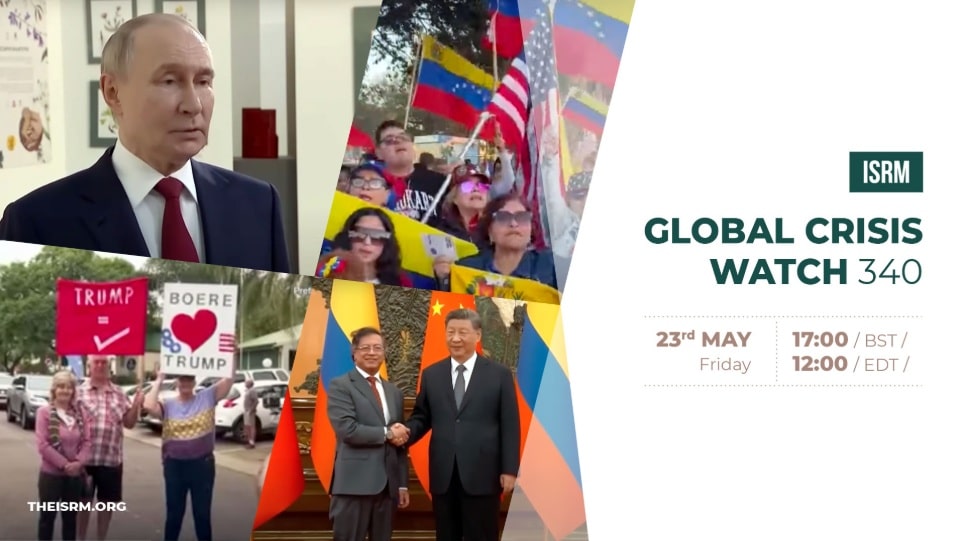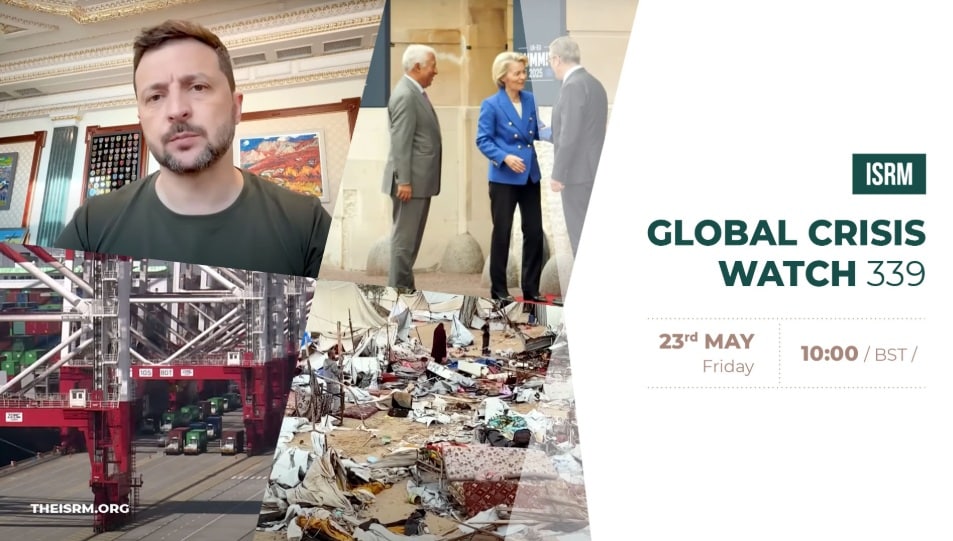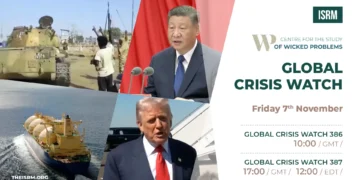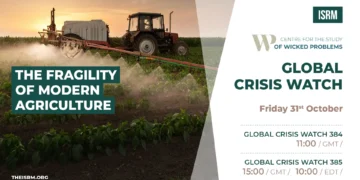The Institute of Strategic Risk Management (ISRM) has announced this week’s Global Crisis Watch sessions, numbers 339 and 340. These both take place tomorrow at 10:00 BST and 17.00 BST/12.00 EDT, respectively. This weeks topics for 339 will include the ongoing war in Ukraine, despite Zelensky signalling openness to peace, the hundreds killed in Gaza as a new Israeli offensive begins, China tightening its grip on rare earth minerals despite trade truce with the U.S, and finally, the UK and Europe post-Brexit trade deal reconnecting the relationship.
Putin and Zelensky signal openness to peace, but war grinds on
In a flurry of diplomacy on Monday, May 15, US President Donald Trump announced that Russia and Ukraine have agreed to begin immediate ceasefire talks. After a two-hour phone call with Russian President Vladimir Putin, Trump briefed Ukrainian President Volodymyr Zelensky and several EU leaders. While Trump called the talks productive and emphasised that negotiations should lead to an “END to the War,” there was no concrete agreement or timeline for a ceasefire.
Hundreds killed in Gaza as new Israeli operation begins
Israel launched a major new ground and air offensive across northern and southern Gaza over the weekend, killing over 400 people since Thursday and shutting down the last functioning hospital in the north. The operation, dubbed “Gideon’s Chariots,” aims to defeat Hamas and secure the release of Israeli hostages. It comes as indirect ceasefire talks resume in Doha, mediated by the US, Qatar and Egypt. Despite signs of limited flexibility, including a Hamas offer (later denied) to exchange hostages for a 60-day ceasefire, a breakthrough appears unlikely. Israel insists it will only end the war if Hamas surrenders—an offer Hamas rejects.
China tightens grip on rare earths despite US trade truce
Although the US and China agreed to a temporary easing of tariffs during recent trade talks in Geneva, China is maintaining strict controls over its rare earth exports – a strategic move that highlights deep, ongoing geopolitical tensions. Despite US assurances that Beijing would lift restrictions, China’s export licensing system for rare earth magnets remains active, with no signs of rollback.
From Separation to Strategy: Post-Brexit deal reconnects Britain and Europe
The UK and European Union have reached a comprehensive agreement to reset their relationship, nearly a decade after the Brexit referendum fractured ties. Announced in London by Prime Minister Keir Starmer and EU Commission President Ursula von der Leyen, the deal spans trade, defence, youth mobility, energy and education – marking the biggest post-Brexit shift in UK-EU cooperation.
Register for 339, and read more about the topics, here

The ISRM will also host Global Crisis Watch 340 tomorrow, and topics will include the ongoing war in Ukraine, as detailed above, the US welcoming Afrikaner refugees, the Supreme Court ending deportation protection for Venezuelans, and Colombia eyeing deal with China. Read a bit more about these below.
US welcomes Afrikaner refugees amid criticism over racial preference and refugee policy
On Monday, May 12, fifty-nine white South Africans from the Afrikaner minority arrived in the US as refugees, admitted under a special exemption to the Trump administration’s suspended refugee program. The arrivals were met by high-ranking US officials and were brought on a State Department-chartered flight. This exception was made on the grounds of alleged race-based discrimination and violence in South Africa, which the Trump administration framed as a justification for refugee status.
Supreme Court clears way for ending deportation protections for 350,000 Venezuelans
The US Supreme Court has allowed the Trump administration to end Temporary Protected Status (TPS) for nearly 350,000 Venezuelans living in the United States. TPS is a humanitarian program that provides legal protection and work permits to migrants from countries experiencing war, natural disasters or other extreme crises. Venezuela was designated for TPS in 2021 due to a severe humanitarian crisis involving widespread hunger, political repression and infrastructure collapse.
Colombia eyes major infrastructure deal with China, challenging US influence in region
Colombia has officially applied to join the China-based New Development Bank (NDB), a move reflecting Latin America’s gradual shift away from traditional US influence toward closer ties with China. This decision comes amid frustration with US policies under the Trump administration, including cuts to foreign aid, increased trade barriers and tougher immigration enforcement, which have prompted many Latin American leaders to seek partnerships beyond Washington.
To register for 340 and to read more about the topics, click here
For more ISRM news, click here





